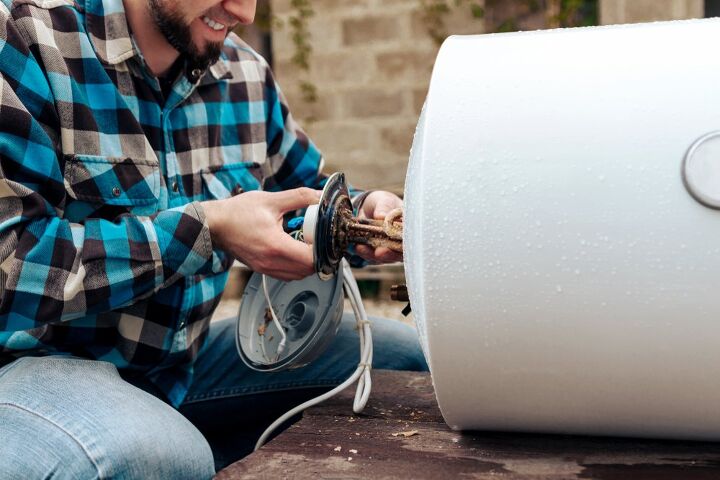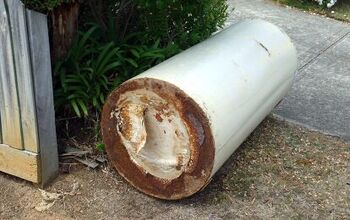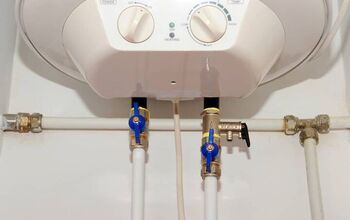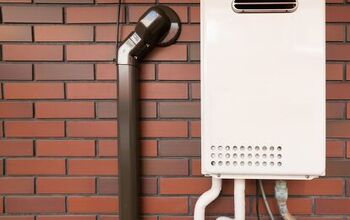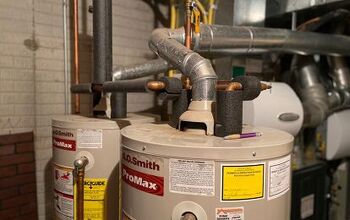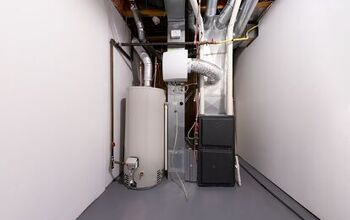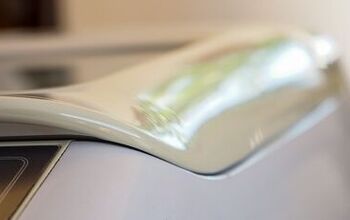Can A Bad Water Heater Raise Your Water Bill? (Find Out Now!)

In this crazy modern day, it seems like almost every single necessity is skyrocketing in price. This includes water. With water beginning to get scarce in certain parts of the country, it makes sense to take a look at ways to trim your water bill. One of the most common rumors mentioned among home improvement circles is that a bad water heater can cause a spike in your water bill. Are you wondering if the rumor is true? We got some news for you…
Believe it or not, a bad water heater can raise your water bill significantly. Leaky heaters will cause you to lose water, upping your bill significantly. A water heater that is heavily clogged with sediment or a poorly insulated heater can encourage more water usage by forcing you to run the water for longer in order to get the heat you want.
There are a lot of reasons why you should be careful when it comes to keeping a functional water heater. It’s time to explain why your heater could be the cause of your higher water bills.
Do You Need Water Heater Repair Services?
Get free, zero-commitment quotes from pro contractors near you.

How Does A Water Heater Impact Your Water Bill?
At first glance, seeing a water heater as a source of a higher water bill doesn’t make sense. Sure, it heats your water, but it’s not like it’s the thing that’s dispensing it like a showerhead or a toilet. It can be surprising to find out that it can make your bill massively higher. Here’s what can cause your water bill to jump if you have a bad heater.
Leaks
It’s no secret that water heaters (and water tanks) can leak. In fact, that’s one of the leading reasons for people to replace them. When a leak occurs, it’s in your best interest to get your heater replaced ASAP. Along with raising the water bills (because, hey, you’re losing water!) this can actually cause serious damage to your home.
A single leak that’s ignored for too long can cause serious damage to your home’s structure, especially if you’re dealing with wooden columns nearby or structure beams. If you notice that your water pressure suddenly dropped or you’ve begun to smell a musty odor near the tank, call a plumber. You might have a heater leak or a leak in the plumbing nearby.
Sediment Clogs
As water heaters age, you’re going to have a buildup of sediment from water impurities occur. It’s unavoidable. When you have too much sediment, it can negatively impact your heater’s ability to heat water properly. At times, it can also reduce water pressure. Both will cause you to run hot water longer so that you can get the temperature you once used to be able to get in a pinch.
Sediment clogs can be pretty rough on all parts of your heater. If you suspect that your heater is suffering from a lot of clogs, then you may want to start saving up for a new heater before it starts to leak out of the bottom.
Poor Insulation
Most of the time, the spike in water bills can be explained by a heater that has run its proverbial course. However, this isn’t always the case. If you have a brand new water heater and recently noticed a spike in your water bills, there’s still a chance that your heater could be the cause. This is particularly true if you notice that your heater has bad insulation or is cheaply made.
Heaters that don’t work properly will encourage overuse of water for the same reason that sediment clogs do. They will make you run the water for a longer period of time, just to get the temperature that you need. Sadly, there’s not always a good way to make sure that your problem gets fixed.
If you find yourself in this situation, the best thing you can try to do is to call the water heater manufacturer. If your heater is still under warranty, you might have a shot at a replacement or a repair. Even then, this is iffy simply because it’s not a clear sign of a problematic part. With that said, they may still offer some advice for you even if they won’t honor the warranty. So, why not give it a try?
Do You Need Water Heater Repair Services?
Get free, zero-commitment quotes from pro contractors near you.

Related Questions
What is the most common reason for a high water bill?
Believe it or not, a leaky toilet that continually runs is one of the most common reasons for a high water bill. If you notice that your toilet regularly leaks, the best thing you can do for your water bill is to get it fixed as soon as possible. Your wallet (and your environment) will thank you for it.Other major reasons why include leaks in your main plumbing lines and excessive use of your bathtub. However, those are pretty obvious since they tend to use up larger quantities of water. To reduce your water bill, stick to showers and try to use low-flow toilets and showerheads.
How much water should a two-person household use?
A single household can use anywhere from 80 to 100 gallons of water per day. If you have a particularly large yard in a higher-temperature region, you may also have additional water needs just to make sure your lawn doesn’t die. The more people you have in your home, the higher you should expect bills to be. Careful conservation of water is always a good idea, even if you don’t have many people in your family.
How can you tell if your water heater is going bad?
The most common telltale sign of a dying water heater is an inability to produce enough hot water. You might notice that the water isn’t as warm as it once was, or that the water pressure may not feel quite right. If you notice signs of corrosion or leaking, then the chances of your water heater lasting for much longer are slim. A leak from the bottom of your water heater often signals the end of the heater’s life.

Ossiana Tepfenhart is an expert writer, focusing on interior design and general home tips. Writing is her life, and it's what she does best. Her interests include art and real estate investments.
More by Ossiana Tepfenhart



